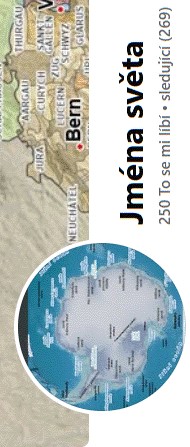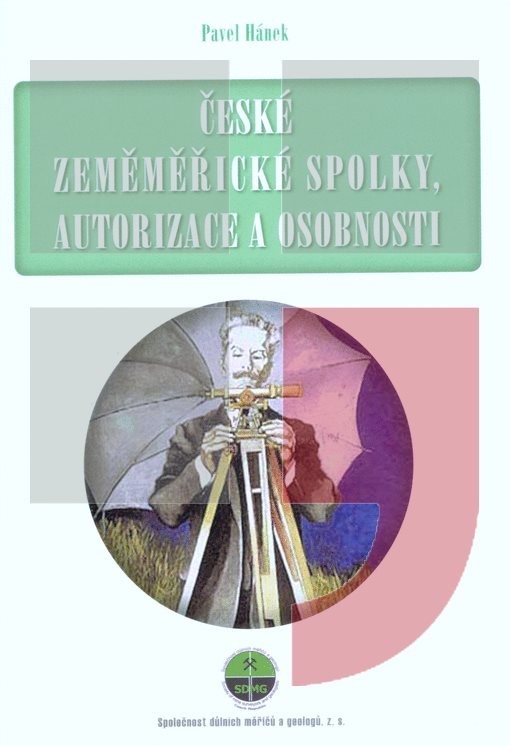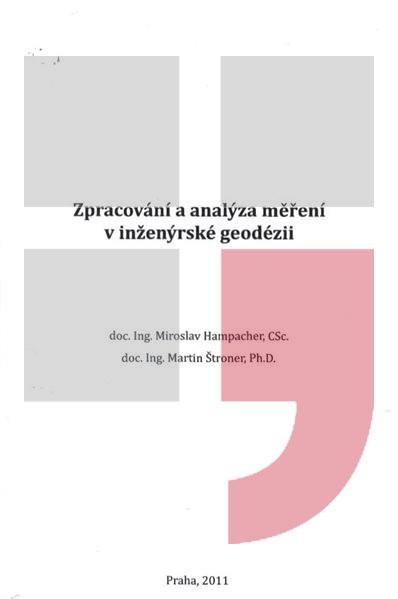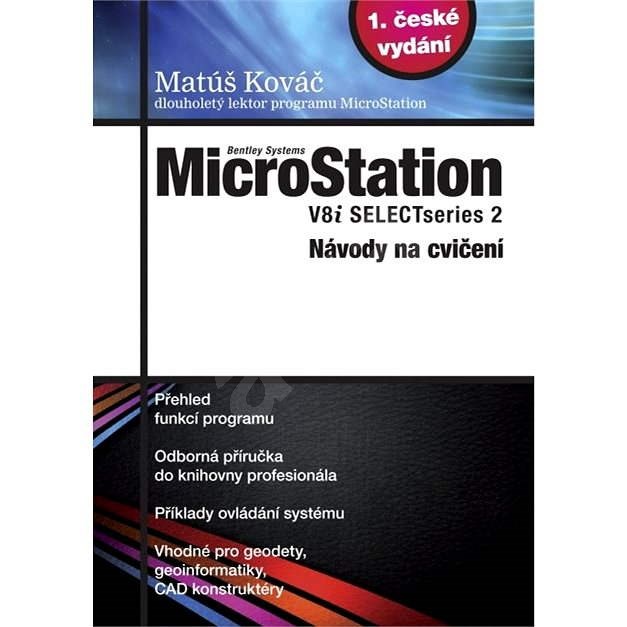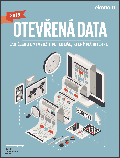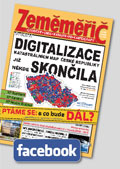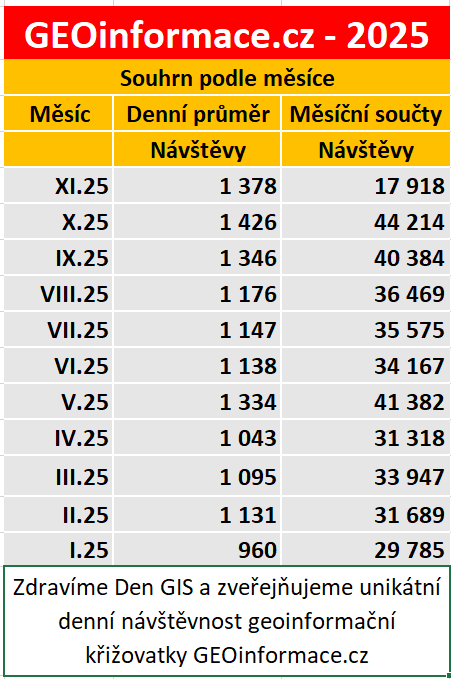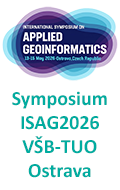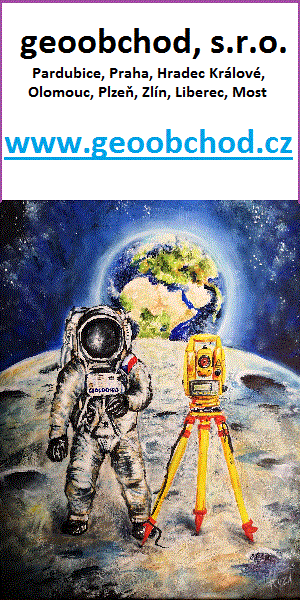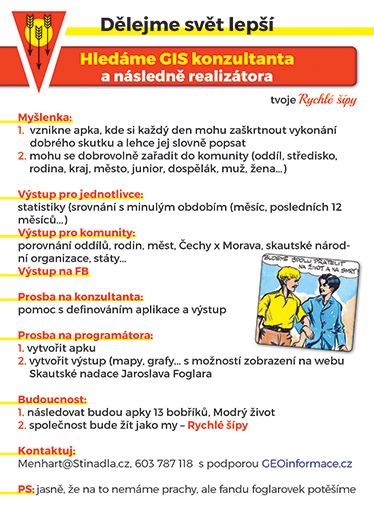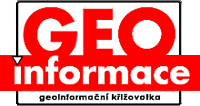zprávy
zdroje zpráv:Setkání zeměměřičů Plzeňského a Karlovarského kraje
1.6.2023 12:14 ZeměměřičAsociace podnikatelů v geomatice (APG) zve na Setkání zeměměřičů Plzeňského a Karlovarského kraje. Setkání se uskuteční v pondělí 19. června 2023 od 9:15 v areálu Fakulty aplikovaných věd Západočeské univerzity v Plzni (Technická 8, Plzeň 3, budova NTIS, posluchárna UN207). Prezence: od 9:00, předpokládané ukončení ve 13 hod. Program setkání 9:00 – 9:15 – Prezence 9:15 – 10:45 – Blok I […]
The post Setkání zeměměřičů Plzeňského a Karlovarského kraje appeared first on Zeměměřič.
How EU Space supports Europe’s environmental policies
1.6.2023 11:48 European GNSS Agency
A famous frog once sang, ‘it’s not easy being green’.
Clearly, he didn’t know about EU Space.
“With the wealth of data, services and information that the EU Space Programme provides, ‘being green’ has become a whole lot easier,” says EUSPA Executive Director Rodrigo da Costa.
As Europe prepares to celebrate EU Green Week from 3 – 11 June, let’s look at some of the ways EU Space supports the package of policies and initiatives that is the European Green Deal – Europe’s roadmap to becoming the world’s first climate neutral continent.
Energy Performance of Buildings Directive
Our homes, offices, schools, hospitals, libraries, and other buildings are, collectively, the single largest consumer of energy. They’re also one of the largest emitters of carbon dioxide, responsible for 36% of all greenhouse gas emissions.
In other words, the path to climate neutrality starts with energy efficient buildings.
Here, the Copernicus Atmosphere Monitoring Service helps monitor emissions in residential areas of cities. With this information in hand, urban planners can focus on renovating the worst-performing buildings first.
Last year, EUSPA also kicked-off a series of Horizon Europe projects that aim to support the transversal objectives of the European Green Deal. Among these projects, BUILDSPACE aims to enable greener and more sustainable management of buildings and urban areas in European cities, using Digital Twins powered by EU Space data. The city services of Piraeus, Riga and Ljubljana are expected to validate the digital twin services delivered by the project.
Renewable Energy Directive / RePowerEU
Today, approximately 22% of the EU’s energy comes from renewable sources. These initiatives seek to not only more than double this, but to do so in just a few years’ time.
Unfortunately, we don’t have a ‘magic switch’ that we can flip to go from our current fossil fuel- based energy system to one based on renewables. But what we do have is EU Space. A recently initiated EUSPA project called RESPONDENT uses Galileo timing and synchronization services to allow for smarter grid monitoring, improved power balancing and overall better operation of the infrastructure of renewable energy sources.
From choosing the best location for wind turbines to understanding how dust storms might impact solar energy production, the EU Space Programme will be a key enabler of Europe’s energy transition.
Corporate Sustainability Reporting Directive
Large listed businesses, banks and insurance companies with over 500 employees are required to reports on their Environment-Social-Government (ESG) policies and performance. To do so, many are turning to Earth Observation.
High-quality, objective, independent, verifiable, regularly updated, comprehensive, global – these are all reasons why Earth Observation data is so well-suited for environmental risk assessment and monitoring. Furthermore, Earth Observation has the benefit of allowing users to quickly and cost-effectively collect and analyse large amounts of information over a large spatial extent in a consistent, unbiased, repetitive and cost-effective manner.
Regulation on Land Use, Land Use Change & Forestry
Both Galileo and Copernicus play a role in preventing illegal logging. By flagging potential development and road construction happening within forests, Earth Observation data helps authorities look for illegal activity and predict where such activity is most likely to occur. Authorities can also leverage the precise positioning provided by Galileo to track timbre movements, which increases the transparency and traceability of the timber supply chain and reduces the likelihood that illegal exportation goes unnoticed.
Carbon Offset and Reduction Scheme for International Aviation
Once an airline’s collective emissions surpass 2019 levels, CORSIA requires them to offset all additional carbon emissions. But instead of just paying to offset, airlines are also working to reduce their carbon footprint. For example, using Galileo, airlines and airports can improve their ground operations, saving fuel and thus cutting greenhouse gas emissions.
EGNOS also helps make flights more sustainable. On the one hand, EGNOS allows for a smooth, continuous glide path approach that is significantly more fuel efficient. On the other hand, the lower decision height that EGNOS enables can help pilots better evaluate visibility conditions, which in many cases means avoiding the need to circle or divert – two manoeuvres that burn a lot of fuel.
Supporting companies’ green transformations
While each of the above listed initiatives are essential to achieving Europe’s ambitious climate change goals, policy without action amounts to nothing more than empty promises. In fact, each of these goals requires that companies take a deep look at their internal operations, as well as their supply chains, to identify opportunities for reducing their own environmental footprints.
Here too EU Space plays a role.
While the EU Space Programme and the data and services it provides are important assets to supporting the implementation of the Green Deal, businesses stand to benefit too. For example, Copernicus, Galileo and EGNOS supply the information companies need to monitor environmental indicators, reduce their environmental impact, comply with relevant policies and regulations, become more sustainable and drive the green transformations. Better yet, much of this data is openly accessibly and provided free of charge.
To help companies utilise this data as a means of driving their own sustainability journeys, EUSPA has published its first EU Space for the Green Transformation report. The practical guide is full of best practices and real-world examples on how EU Space can make being green easier for companies of all shapes, sizes and sectors.
“If this report is a trusted roadmap for a green transformation and sustainability journey for companies willing to evolve towards a sustainable future, EUSPA's work on Horizon Europe also creates new opportunities for businesses and reinforces the Union's green ambition. Together, we can drive positive change and seize the benefits of sustainable practices, " concludes da Costa.
You can download your free copy of the EU Space for the Green Transformation report here.
Media note: This feature can be republished without charge provided the European Union Agency for the Space Programme (EUSPA) is acknowledged as the source at the top or the bottom of the story. You must request permission before you use any of the photographs on the site. If you republish, we would be grateful if you could link back to the EUSPA website (http://www.euspa.europa.eu).
Accelerating the Green Transition
1.6.2023 10:30 ESA Observing the Earth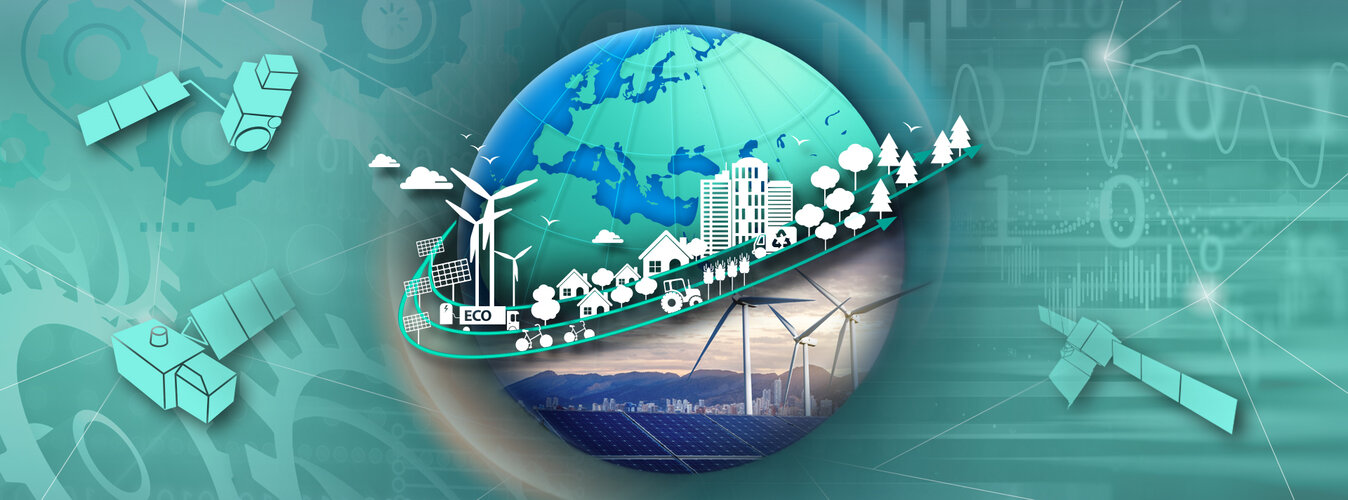
Earth observation has been essential in identifying and monitoring climate change. Satellite data form the baseline for effective European mitigation and adaptation strategies to support the Green Transition, the European Union to reach its goal of becoming carbon neutral by 2050, as well as its Green Deal.
ESA has now concluded its initial phase of a pilot initiative in Austria that demonstrates the untapped potential of space technologies by providing actionable Earth observation information to accelerate the Green Transition for both society and the economy.
Accelerating the Green Transition
1.6.2023 10:30 ESA Observing the Earth
Earth observation has been essential in identifying and monitoring climate change. Satellite data form the baseline for effective European mitigation and adaptation strategies to support the Green Transition, the European Union's Green Deal and the global goal of becoming carbon neutral by 2050.
ESA has now concluded its initial phase of a pilot initiative in Austria that demonstrates the untapped potential of space technologies by providing actionable Earth observation information to accelerate the Green Transition for both society and the economy.
Galileo Second Generation enters full development phase
1.6.2023 9:35 ESA Navigation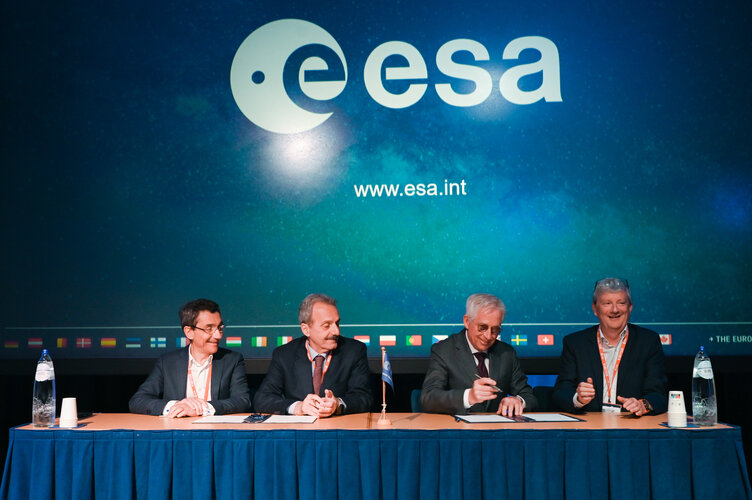
Update July 2023:
Three more contracts for Galileo’s Second Generation development have been signed by ESA, on behalf of EUSPA, with respectively GMV (Spain) for the Ground Control Segment, Thales (France) for Security Monitoring and Thales Alenia Space (France) on the Ground Mission Segment. In total, an amount of approximately €900 million has been awarded since summer 2022 which will lead forward the development of Galileo’s Second Generation to provide more robust, resilient, and new services in the near future for users worldwide.
Galileo Second Generation enters full development phase
1.6.2023 9:35 ESA Navigation
The main procurements batch of Galileo Second Generation initiated last summer has been finalised, leaving the system ready for its In Orbit Validation development phase. Today, following the opening session of the European Navigation Conference (ENC), ESA Director of Navigation Javier Benedicto invited Thales (Italy), Airbus Defence and Space (Germany) and Thales Six GTS (France) to sign the respective contracts commencing System Engineering Support for the next generation of Europe’s navigation satellite system.
Včelaření v době klimatické změny (mapová publikace)
1.6.2023 8:48 GISportal.cz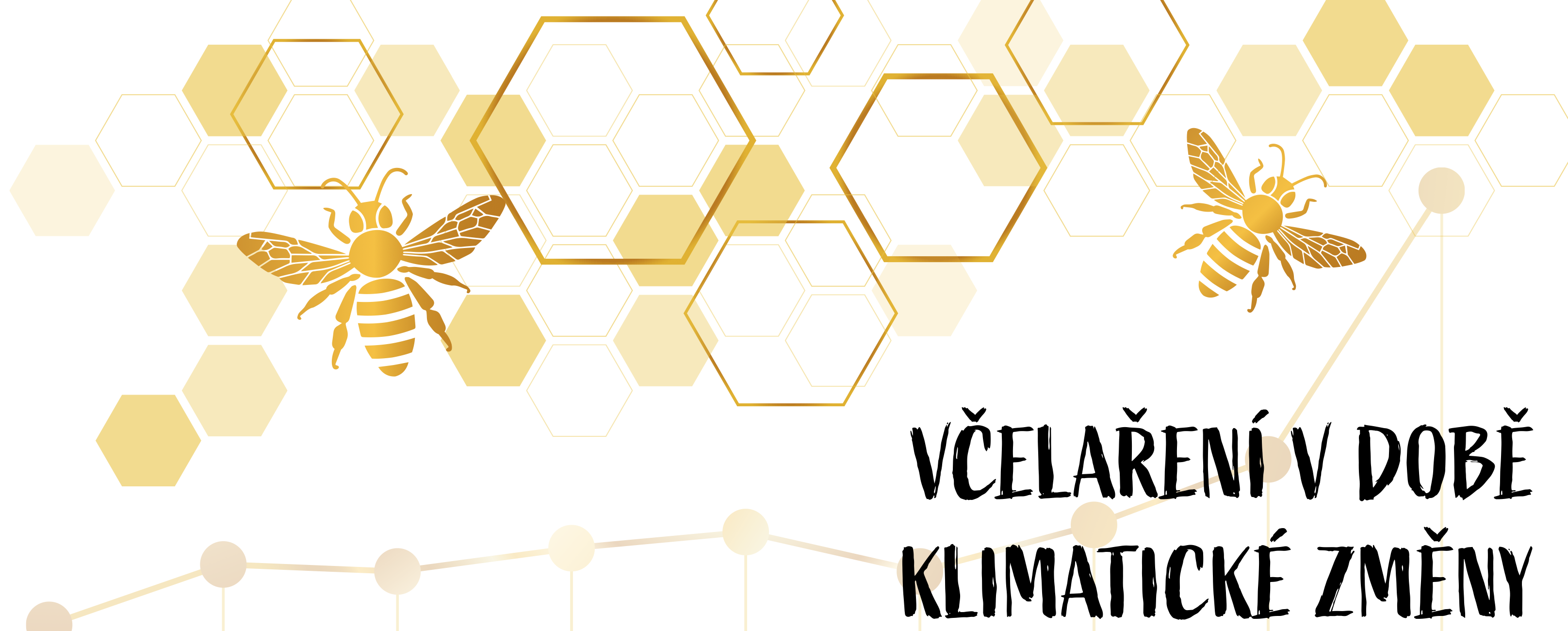
Ve spolupráci geoinformatiků a biochemiků z Přírodovědecké fakulty Univerzity Palackého v Olomouc vznikla zajímavá mapová publikace „Včelaření v době klimatické změny“. Na tomto odkazu si můžete zdarma stáhnout první mapovou publikaci, která formou map popisuje změny ve včelařském sektoru za několik posledních let. Jedná o první publikaci svého druhu, která vychází z dat dostupných pro […]
The post Včelaření v době klimatické změny (mapová publikace) appeared first on GISportal.cz.
ARKANCE zíkává firmu VinZero a zdvojnásobuje svou velikost
1.6.2023 8:00 Arkance SystemsVýznamná akvizice mezinárodní společnosti VinZero, která se specializuje na digitální transformaci pro stavebnictví a strojírenství.
Zpráva ARKANCE zíkává firmu VinZero a zdvojnásobuje svou velikost pochází z arkance-systems.cz.
ARKANCE získává firmu VinZero a zdvojnásobuje svou velikost
1.6.2023 8:00 Arkance SystemsVýznamná akvizice mezinárodní společnosti VinZero, která se specializuje na digitální transformaci pro stavebnictví a strojírenství.
Zpráva ARKANCE získává firmu VinZero a zdvojnásobuje svou velikost pochází z arkance-systems.cz.
Červnový den s CAD technikem – bezplatná online konzultace pro vaši firmu
1.6.2023 7:30 Arkance Systems23. června 2023 - přihlaste se na nový termín akce společnosti Arkance Systems. Těšíme se na vás.
Zpráva Červnový den s CAD technikem – bezplatná online konzultace pro vaši firmu pochází z arkance-systems.cz.
Červnový den s CAD technikem – bezplatná online konzultace pro vaši firmu
1.6.2023 7:30 Arkance Systems22. června 2023 - přihlaste se na nový termín akce společnosti Arkance Systems. Těšíme se na vás.
Zpráva Červnový den s CAD technikem – bezplatná online konzultace pro vaši firmu pochází z arkance-systems.cz.
Výběrové řízení na pozici odborný referent v oddělení právních vztahů k nemovitostem Katastrálního p
1.6.2023 7:09 ČÚZK - předpisy a opatření Katastrální úřad pro Královéhradecký kraj Katastrální pracoviště Rychnov nad Kněžnouvypisuje výběrové řízení na místo
Výběrové řízení na pozici odborný referent v oddělení právních vztahů k nemovitostem Katastrálního pracoviště Rychnov nad Kněžnou
Výběrové řízení na pozici odborný referent v oddělení právních vztahů k nemovitostem Katastrálního p
1.6.2023 7:09 ČÚZK - volná místa Katastrální úřad pro Královéhradecký kraj Katastrální pracoviště Rychnov nad Kněžnou vypisuje výběrové řízení na místo Výběrové řízení na pozici odborný referent v oddělení právních vztahů k nemovitostem Katastrálního pAPGEO - SPŠ stavební Brno novým přidruženým členem APG
1.6.2023 2:00 Asociace podnikatelů v geomatice V květnu se novým přidruženým členem stala Střední průmyslová škola stavební Brno.Trimble X9, nový statický skenovací systém, navazuje na model X7
31.5.2023 20:13 ZeměměřičSpolečnost Trimble představila 3D laserový skenovací systém Trimble X9. Nový model Trimble X9 rozšiřuje model Trimble X7 a přináší větší dosah, vyšší přesnost, kratší dobu skenování a vyšší citlivost, což má zlepšovat výsledky skenování Díky výkonnějšímu laseru se má zvýšit citlivost všech skenů, čímž model X9 umí zpracovat i doposud obtížné tmavé nebo reflexní povrchy. Nová konstrukce středové […]
The post Trimble X9, nový statický skenovací systém, navazuje na model X7 appeared first on Zeměměřič.
Galileo Second Generation enters full development phase
31.5.2023 14:35 ESA Navigation
The main procurements batch of Galileo Second Generation initiated last summer has been finalised, leaving the system ready for its In Orbit Validation development phase. Today, following the opening session of the European Navigation Conference (ENC), ESA Director of Navigation Javier Benedicto invited Thales Alenia Space (Italy), Airbus Defence and Space (Germany) and Thales Six GTS (France) to sign the respective contracts commencing System Engineering Support for the next generation of Europe’s navigation satellite system.
Nový GIS ve společnosti ČEVAK
31.5.2023 14:08 blog ARCDATA Přechod na novou technologii je vždy náročný projekt, a to zejména u komplexních systémů. V tomto článku se dozvíte, jak společnost ČEVAK a.s. převedla svůj GIS na systém ArcGIS, a zjistíte, jaké výhody to přineslo – od pohodlnější práce zaměstnanců po lepší informovanost zákazníků.New site in Greenland to enhance Galileo SAR
31.5.2023 10:47 European GNSS Agency
On May 17, 2023, the European Union Agency for the Space Programme (EUSPA) and Naviair, signed a cooperation agreement aimed at strengthening the monitoring capabilities of the Galileo Search and Rescue (SAR) Service by establishing a new site in Greenland. This collaboration marks a significant step towards ensuring the redundancy, of the SAR/Galileo system and therefore the safety and security of the European Union and its surrounding regions.
EUSPA, as the user-oriented operational agency of the EU Space Programme, is dedicated to promoting sustainable growth, security, and safety within the European Union. Naviair, a company owned by the Danish state and represented by the Ministry of Transport, specializes in air navigation and related infrastructure services.
The SAR/Galileo component of the EU Space Programme plays a crucial role in the detection of emergency signals transmitted by distress beacons in support of the internationally recognized Search and Rescue (SAR) Cospas-Sarsat programme. As part of this programme, the Galileo SAR Service utilises SAR instruments onboard Galileo satellites, Medium Earth Orbit Local User Terminals (MEOLUTs), and a network of SAR Reference Beacons (REFBE) located across Europe.
Recognizing the need to strengthen SAR Service monitoring capabilities, particularly around the edges of the European area, EUSPA and Naviair have joined hands to extend the ground segment and the current capabilities. As part of the agreement, Naviair will contribute to the Galileo Programme objectives by procuring, deploying, hosting, and operating a REFBE nearby the Kangerlussuaq airport in Greenland. This initiative will play a pivotal role in supporting SAR Service monitoring in cooperation with EUSPA.

SAR Reference Beacons in European Coverage Area and Indian Coverage Area
Rodrigo da Costa, Executive Director of EUSPA, highlighted that “Naviair's commitment aligns perfectly with the goals of EUSPA to constantly strengthen and advance the capabilities and services provided ensuring the safety and security of individuals within the European Union and beyond.”
Mads Kvist Eriksen, Chief Executive Officer of Naviair, expressed his enthusiasm about this collaboration, stating, "Naviair is looking forward to hosting a SAR/Galileo Reference Beacon in Kangerlussuaq, Greenland, to support SAR Service monitoring capabilities around the edges of the European area in cooperation with EUSPA."
In addition, the cooperation agreement between EUSPA and Naviair sets a precedent for future partnerships, clearly exemplifying the spirit of international cooperation that drive the Search and Rescue efforts worldwide.
The new SAR/Galileo Site and REFBE will be strategically located around the margins of the declared Service Coverage Area (see Figure 2) and will be fully integrated to SAR Ground Segment, raising the number of REFBEs to total of eight. The REFBEs provide data for service performance monitoring and there are currently five in the European Coverage Area and two in the Indian Ocean Coverage Area.
The REFBEs are fitted with vertical linear polarized antenna that transmit timely synchronised signals equivalent to a standard 406 MHz Cospas-Sarsat beacon which combined to their well-known position enables specific SAR/Galileo Service performance indicators to be derived.
The new site is bound to be ready by the fourth quarter of 2023.
Media note: This feature can be republished without charge provided the European Union Agency for the Space Programme (EUSPA) is acknowledged as the source at the top or the bottom of the story. You must request permission before you use any of the photographs on the site. If you republish, we would be grateful if you could link back to the EUSPA website (http://www.euspa.europa.eu).
Krátka správa č. 25/2023
31.5.2023 9:24 Komora geodetů a kartografů SRThe post Krátka správa č. 25/2023 appeared first on Komora geodetov a kartografov.
Register for ESA’s first Earth observation commercialisation event
31.5.2023 8:55 ESA Observing the Earth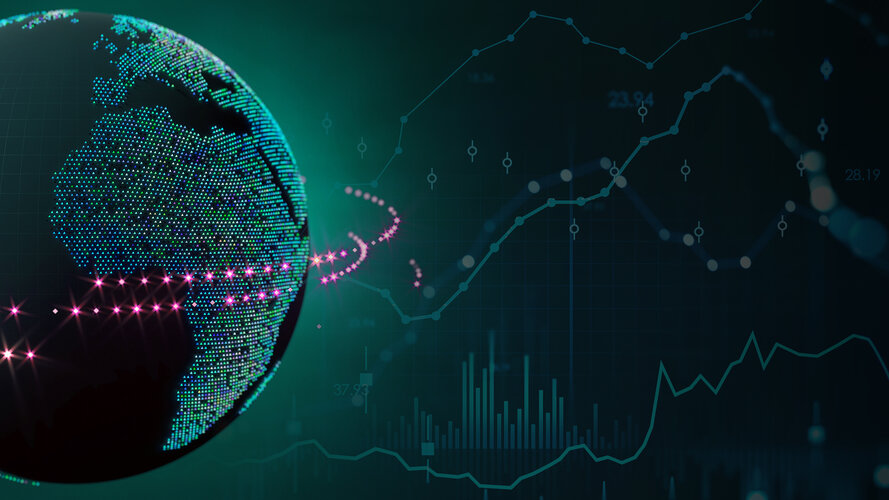
Registration is now open for ESA’s first-ever Earth Observation Commercialisation Forum. Taking place at ESA Headquarters in Paris from 30 to 31 October 2023, investors, institutions, entrepreneurs and companies of any size from the Earth observation sector will now be able to come together and discuss the commercial potential and challenges of Earth observation, together with the technical, industrial and risk-capital support available to European companies.
APGEO - Pozvánka na Setkání zeměměřičů Plzeňského a Karlovarského kraje
31.5.2023 2:00 Asociace podnikatelů v geomatice Pozvánka na Setkání zeměměřičů Plzeňského a Karlovarského kraje, které se uskuteční 19. června 2023 v Plzni.TOSHULIN využívá generativní navrhování v Autodesk Fusion 360
30.5.2023 14:10 Arkance SystemsGenerativní design a další nové technologie pro navrhování a optimalizaci strojních součástí.
Zpráva TOSHULIN využívá generativní navrhování v Autodesk Fusion 360 pochází z arkance-systems.cz.
Oznámení o vyhlášení VŘ na služební místo rada-odborný rada
30.5.2023 13:17 ČÚZK /Urady/Zememericke-a-katastralni-inspektoraty/Zememericke-a-katastralni-inspektoraty/Zememericky-a-katastralni-inspektorat-v-Praze/O-uradu/Aktuality/Oznameni-o-vyhlaseni-VR-na-sluzebni-misto-rada-odbOznámení o vyhlášení VŘ na služební místo rada-odborný rada
30.5.2023 13:17 ČÚZK - předpisy a opatření Zeměměřický a katastrální inspektorát v Praze zveřejnil novou aktualitu: Zeměměřický a katastrální inspektorát v Praze vyhlašuje výběrové řízení na služební místo Rada/Odborný rada inspektor (obor služby 55)Rada/odborný rada - inspektor ZKI v Praze (obor služby 55.)
30.5.2023 13:12 ČÚZK /Urady/Zememericke-a-katastralni-inspektoraty/Zememericke-a-katastralni-inspektoraty/Zememericky-a-katastralni-inspektorat-v-Praze/Uredni-deska/Oznameni-a-jina-uredni-sdeleni/Volna-mista/DMS/Rada-odborny-rada-inspektor-ZKI-v-Praze-(obor-sluzRada/odborný rada - inspektor ZKI v Praze (obor služby 55.)
30.5.2023 13:12 ČÚZK - volná místa Zeměměřický a katastrální inspektorát v Praze vypisuje výběrové řízení na místo Rada/odborný rada - inspektor ZKI v Praze (obor služby 55.)Rada/odborný rada - inspektor ZKI v Praze (obor služby 55.)
30.5.2023 13:12 ČÚZK - předpisy a opatření Zeměměřický a katastrální inspektorát v Prazevypisuje výběrové řízení na místo
Rada/odborný rada - inspektor ZKI v Praze (obor služby 55.)
20230530_Vrchní referent / rada oddělení aktualizace GI KN Katastrálního
30.5.2023 11:20 ČÚZK /Urady/Katastralni-urady/Katastralni-urady/Katastralni-urad-pro-Stredocesky-kraj/Katastralni-pracoviste/KP-Praha-vychod/O-uradu/Aktuality/20210922_Odborny-referent-oddeleni-aktualizace-(1)20230530_Vrchní referent / rada oddělení aktualizace GI KN Katastrálního
30.5.2023 11:20 ČÚZK - předpisy a opatření Katastrální úřad pro Středočeský kraj - Katastrální pracoviště Praha-východ Vyhlášení výběrového řízení: Vrchní referent / rada oddělení aktualizace GI KN Katastrálního V části "Úřední deska", v sekci "Oznámení a jiná úřední sdělení" bylo vystaveno "Oznámení o vyhlášení výběrového řízení na obsazení služebního místa Vrchní referent / rada oddělení aktualizace GI KN Katastrálního"Vrchní referent / rada oddělení aktualizace GI KN Katastrálního
30.5.2023 11:18 ČÚZK /Urady/Katastralni-urady/Katastralni-urady/Katastralni-urad-pro-Stredocesky-kraj/Uredni-deska/Oznameni-a-jina-uredni-sdeleni/Volna-mista/DMS/Vrchni-referent-rada-oddeleni-aktualizace-GI-KN-KaVrchní referent / rada oddělení aktualizace GI KN Katastrálního
30.5.2023 11:18 ČÚZK - volná místa Katastrální úřad pro Středočeský kraj Katastrální pracoviště Praha-východ vypisuje výběrové řízení na místo Vrchní referent / rada oddělení aktualizace GI KN KatastrálníhoVrchní referent / rada oddělení aktualizace GI KN Katastrálního
30.5.2023 11:18 ČÚZK - předpisy a opatření Katastrální úřad pro Středočeský kraj Katastrální pracoviště Praha-východvypisuje výběrové řízení na místo
Vrchní referent / rada oddělení aktualizace GI KN Katastrálního
Aktualizováno: Pozvánka na virtuální setkání ÚOZI
30.5.2023 10:24 ZeměměřičOd 1. července 2023 vzniká zeměměřická komora ze zákona. Zákonná ustanovení jsou již známá a vyplývá z nich mnoho zajímavých informací, o kterých bychom jako zeměměřiči měli vědět. Asociace podnikatelů v geomatice (APG) dokázala svou heroickou snahou a úsilím zeměměřickou komoru vybudovat, tedy zajistit potřebnou shodu napříč politickými stranami, u ministerstev, jiných profesních komor a předložit – po spolupráci řady stran – odpovídající změnu […]
The post Aktualizováno: Pozvánka na virtuální setkání ÚOZI appeared first on Zeměměřič.
Výběrové řízení - rada/odborný rada - inspektor na ZKI Brno
30.5.2023 9:34 ČÚZK /Urady/Zememericke-a-katastralni-inspektoraty/Zememericke-a-katastralni-inspektoraty/Zememericky-a-katastralni-inspektorat-v-Brne/O-uradu/Aktuality/Vyberove-rizeni-rada-odborny-rada-inspektor-na-ZKIVýběrové řízení - rada/odborný rada - inspektor na ZKI Brno
30.5.2023 9:34 ČÚZK - předpisy a opatření Zeměměřický a katastrální inspektorát v Brně zveřejnil novou aktualitu: Oznámení o vyhlášení výběrového řízení na služební místo rada/odborný rada – inspektor Zeměměřického a katastrálního inspektorátu v Brně20230530_Rada / odborný rada oddělení aktualizace a dokumentace KN
30.5.2023 9:17 ČÚZK /Urady/Katastralni-urady/Katastralni-urady/Katastralni-urad-pro-Stredocesky-kraj/Katastralni-pracoviste/KP-Nymburk/O-uradu/Aktuality/20210922_Odborny-referent-oddeleni-aktualizace-(1)20230530_Rada / odborný rada oddělení aktualizace a dokumentace KN
30.5.2023 9:17 ČÚZK - předpisy a opatření Katastrální úřad pro Středočeský kraj - Katastrální pracoviště Nymburk Vyhlášení výběrového řízení: Rada / odborný rada oddělení aktualizace a dokumentace KN V části "Úřední deska", v sekci "Oznámení a jiná úřední sdělení" bylo vystaveno "Oznámení o vyhlášení výběrového řízení na obsazení služebního místa Rada / odborný rada oddělení aktualizace a dokumentace KN"Rada / odborný rada oddělení aktualizace a dokumentace KN
30.5.2023 9:16 ČÚZK - předpisy a opatření Katastrální úřad pro Středočeský kraj Katastrální pracoviště Nymburkvypisuje výběrové řízení na místo
Rada / odborný rada oddělení aktualizace a dokumentace KN
Rada / odborný rada oddělení aktualizace a dokumentace KN
30.5.2023 9:16 ČÚZK /Urady/Katastralni-urady/Katastralni-urady/Katastralni-urad-pro-Stredocesky-kraj/Uredni-deska/Oznameni-a-jina-uredni-sdeleni/Volna-mista/DMS/Rada-odborny-rada-oddeleni-aktualizace-a-dokumentaRada / odborný rada oddělení aktualizace a dokumentace KN
30.5.2023 9:16 ČÚZK - volná místa Katastrální úřad pro Středočeský kraj Katastrální pracoviště Nymburk vypisuje výběrové řízení na místo Rada / odborný rada oddělení aktualizace a dokumentace KNAeolus enhances volcanic ash forecasts for aviation safety
30.5.2023 8:55 ESA Observing the Earth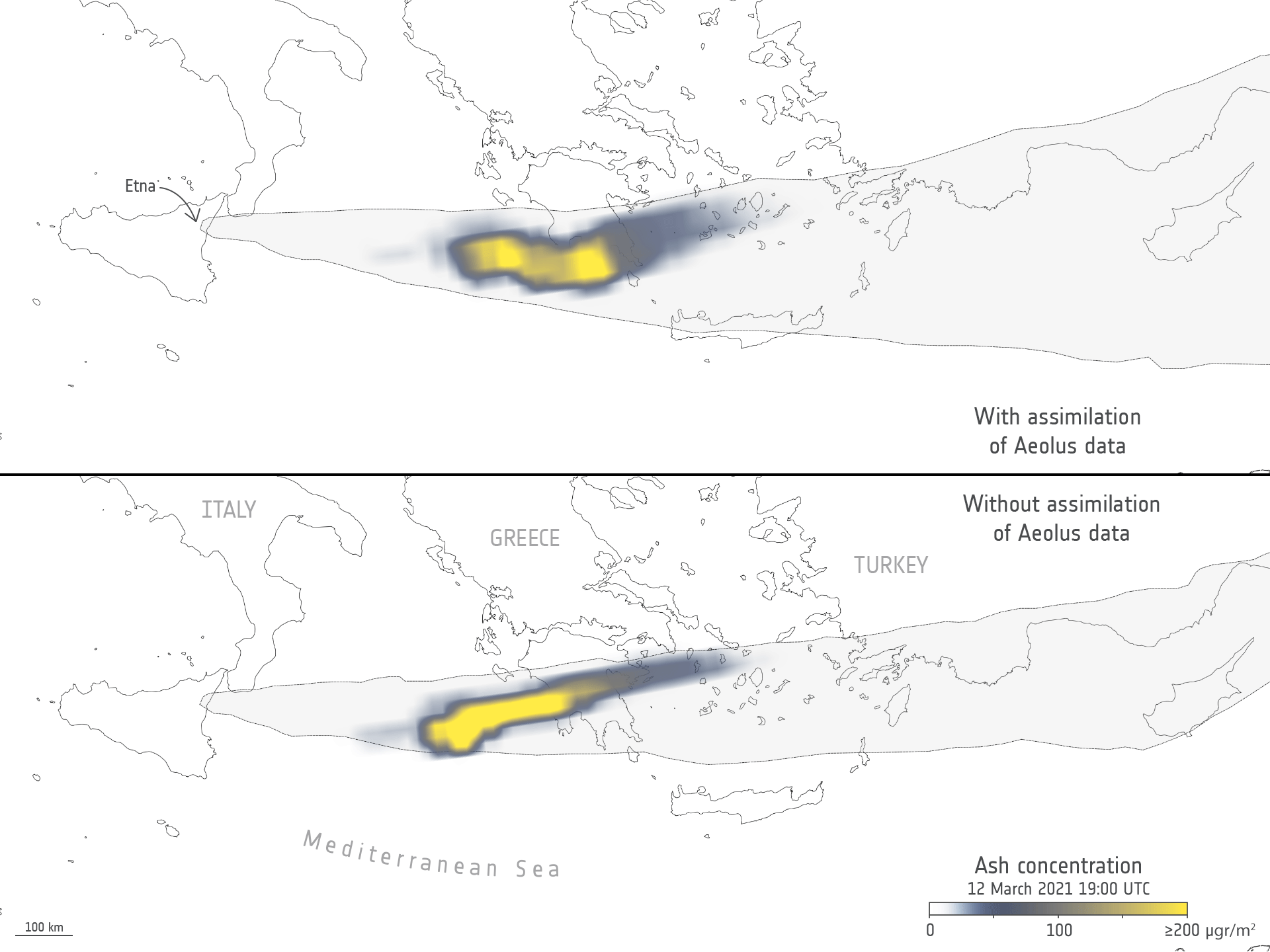
Aeolus enhances volcanic ash forecasts for aviation safety
rada / odborný rada v oddělení právních vztahů k nemovitostem na Katastrálním pracovišti Jablonec na
30.5.2023 7:21 ČÚZK - předpisy a opatření Katastrální úřad pro Liberecký kraj Katastrální pracoviště Jablonec nad Nisouvypisuje výběrové řízení na místo
rada / odborný rada v oddělení právních vztahů k nemovitostem na Katastrálním pracovišti Jablonec nad Nisou Katastrálního úřadu pro Liberecký kraj
rada / odborný rada v oddělení právních vztahů k nemovitostem na Katastrálním pracovišti Jablonec na
30.5.2023 7:21 ČÚZK - volná místa Katastrální úřad pro Liberecký kraj Katastrální pracoviště Jablonec nad Nisou vypisuje výběrové řízení na místo rada / odborný rada v oddělení právních vztahů k nemovitostem na Katastrálním pracovišti Jablonec narada / odborný rada v oddělení právních vztahů k nemovitostem na Katastrálním pracovišti Jablonec na
30.5.2023 7:21 ČÚZK - volná místa Katastrální úřad pro Liberecký kraj - Katastrální pracoviště Jablonec nad Nisou vypisuje výběrové řízení na místo rada / odborný rada v oddělení právních vztahů k nemovitostem na Katastrálním pracovišti Jablonec narada / odborný rada v oddělení právních vztahů k nemovitostem na Katastrálním pracovišti Jablonec na
30.5.2023 7:21 ČÚZK /Urady/Katastralni-urady/Katastralni-urady/Katastralni-urad-pro-Liberecky-kraj/Uredni-deska/Oznameni-a-jina-uredni-sdeleni/Volna-mista/DMS/rada-odborny-rada-v-oddeleni-pravnich-vztahu-k-nemrada / odborný rada v oddělení právních vztahů k nemovitostem na Katastrálním pracovišti Jablonec na
30.5.2023 7:21 ČÚZK - předpisy a opatření Katastrální úřad pro Liberecký kraj - Katastrální pracoviště Jablonec nad Nisouvypisuje výběrové řízení na místo
rada / odborný rada v oddělení právních vztahů k nemovitostem na Katastrálním pracovišti Jablonec nad Nisou Katastrálního úřadu pro Liberecký kraj
Výběrové řízení na pozici rada / odborný rada v oddělení aktualizace katastru nemovitostí Katastráln
30.5.2023 7:10 ČÚZK /Urady/Katastralni-urady/Katastralni-urady/Katastralni-urad-pro-Kralovehradecky-kraj/Uredni-deska/Oznameni-a-jina-uredni-sdeleni/Volna-mista/DMS/Vyberove-rizeni-na-pozici-rada-odborny-rada-v-oddeVýběrové řízení na pozici rada / odborný rada v oddělení aktualizace katastru nemovitostí Katastráln
30.5.2023 7:10 ČÚZK - předpisy a opatření Katastrální úřad pro Královéhradecký kraj Katastrální pracoviště Jičínvypisuje výběrové řízení na místo
Výběrové řízení na pozici rada / odborný rada v oddělení aktualizace katastru nemovitostí Katastrálního pracoviště Jičín
Výběrové řízení na pozici rada / odborný rada v oddělení aktualizace katastru nemovitostí Katastráln
30.5.2023 7:10 ČÚZK - volná místa Katastrální úřad pro Královéhradecký kraj Katastrální pracoviště Jičín vypisuje výběrové řízení na místo Výběrové řízení na pozici rada / odborný rada v oddělení aktualizace katastru nemovitostí KatastrálnRada/odborný rada – inspektor Zeměměřického a katastrálního inspektorátu v Brně
30.5.2023 7:03 ČÚZK /Urady/Zememericke-a-katastralni-inspektoraty/Zememericke-a-katastralni-inspektoraty/Zememericky-a-katastralni-inspektorat-v-Brne/Uredni-deska/Oznameni-a-jina-uredni-sdeleni/Volna-mista/DMS/Rada-odborny-rada-–-inspektor-Zememerickeho-a-kataRada/odborný rada – inspektor Zeměměřického a katastrálního inspektorátu v Brně
30.5.2023 7:03 ČÚZK - předpisy a opatření Zeměměřický a katastrální inspektorát v Brněvypisuje výběrové řízení na místo
Rada/odborný rada – inspektor Zeměměřického a katastrálního inspektorátu v Brně
Rada/odborný rada – inspektor Zeměměřického a katastrálního inspektorátu v Brně
30.5.2023 7:03 ČÚZK - volná místa Zeměměřický a katastrální inspektorát v Brně vypisuje výběrové řízení na místo Rada/odborný rada – inspektor Zeměměřického a katastrálního inspektorátu v BrněOdstávka el. energie
29.5.2023 12:42 ČÚZK - předpisy a opatření Katastrální úřad pro Jihomoravský kraj - Katastrální pracoviště Znojmo zveřejnil novou aktualitu: V důsledku přerušení dodávky elektrické energie bude provoz Katastrálního pracoviště Znojmo dne 15.6.2023 od 11:30 do 14:00 hod. omezen.Děkujeme za pochopení.
Odstávka el. energie
29.5.2023 12:42 ČÚZK /Urady/Katastralni-urady/Katastralni-urady/Katastralni-urad-pro-Jihomoravsky-kraj/Katastralni-pracoviste/KP-Znojmo/O-uradu/Aktuality/Odstavka-el-energieDesáté setkání geodetů Jihočeského kraje
29.5.2023 11:51 ZeměměřičIng. Robert Šinkner (TKP geo) bude další týden ve čtvrtek 8. června v Českých Budějovicích moderovat desáté setkání geodetů Jihočeského kraje. Akce se koná v prostorách Vysoké školy technické a ekonomické v Českých Budějovicích. Prezence: od 8:30 Předpokládané ukončení: 14:40 Program setkání geodetů Jihočeského kraje 9:00 – 9:15 Zahájení 9:15 – 11:00 Blok I: Novela zeměměřického zákona Činnost APG a historie pokusů […]
The post Desáté setkání geodetů Jihočeského kraje appeared first on Zeměměřič.
Odevzdávání PDF souborů na KP ve formátu PDF/A
29.5.2023 11:39 GEUSware V rámci novelizace Katastrální vyhlášky k 1.1.2023 vzniká geodetům povinnost od 1.7.2023 odevzdávat na KP dokumenty ve formátu PDF/A. Program GEUS pro tisk do PDF využívá virtuální tiskárny. V článku naleznete postup, jak získat PDF/A verze PDF 1.7 pomocí různých programů.Odevzdávání PDF souborů na KP ve formátu PDF/A
29.5.2023 11:39 GEUSware V rámci novelizace Katastrální vyhlášky k 1.1.2023 vzniká geodetům povinnost od 1.7.2023 odevzdávat na KP dokumenty ve formátu PDF/A. Některá KP vyžadují formát PDF/A již nyní. Program GEUS pro tisk do PDF využívá virtuální tiskárny. V článku naleznete postup, jak získat PDF/A verze PDF 1.7 pomocí různých programů.Program semináře Unicorn GIS Day 2023. Energetika, umělá inteligence, contracting, BIM, CDE, monitoring rizik
29.5.2023 11:23 GeoBusinessFirma Unicorn pořádá seminář (fyzicky i streamovaný) se vstupem zdarma. Akce se koná ve středu 7. června 2023 v Praze (a na streamu, ke kterému se dostanete, když se zaregistrujete). Program letošního setkání je věnován energetice, umělé inteligenci, contractingu, BIM, CDE a monitoringu rizik. Program Unicorn GIS Day 2023 09:00 – 09:10 Zahájení 09:10 – […]
The post Program semináře Unicorn GIS Day 2023. Energetika, umělá inteligence, contracting, BIM, CDE, monitoring rizik appeared first on GeoBusiness.
Změny ve verzi JVF DTM 1.4.2.2: zapracovány požadavky související s DTM krajů
29.5.2023 10:39 ZeměměřičČeský úřad zeměměřický a katastrální představil chystané vývojové změny a úpravy ve jednotném výměnném formátu Digitální technické mapy ČR. Do verze JVF DTM 1.4.2.2 byly zapracovány požadavky, které vyvstaly především v souvislosti s aktualizací základní prostorové situace (ZPS) DTM krajů. 1. Vymezení oblasti aktualizace ZPS Součástí XML dokumentu s geodetickou aktualizační dokumentací (GAD) DTM je nově také zadání oblasti, ve […]
The post Změny ve verzi JVF DTM 1.4.2.2: zapracovány požadavky související s DTM krajů appeared first on Zeměměřič.
Pozvánka na virtuální setkání ÚOZI
29.5.2023 10:24 ZeměměřičOd 1. července 2023 vzniká zeměměřická komora ze zákona. Zákonná ustanovení jsou již známá a vyplývá z nich mnoho zajímavých informací, o kterých bychom jako zeměměřiči měli vědět. Asociace podnikatelů v geomatice (APG) dokázala svou heroickou snahou a úsilím zeměměřickou komoru vybudovat, tedy zajistit potřebnou shodu napříč politickými stranami, u ministerstev, jiných profesních komor a předložit – po spolupráci řady stran – odpovídající změnu […]
The post Pozvánka na virtuální setkání ÚOZI appeared first on Zeměměřič.
DAEX DESIGN Start pro truhláře a nábytkáře v akci do 31. 5. 2023
29.5.2023 9:09 ŠPINAR - software Vážení zákazníci, připravili jsme pro Vás DAEX DESIGN Start pro výrobce a návrháře nábytku a interiérů s rozšiřujícími bonusy do 31. 5. 2023DAEX DESIGN Start pro truhláře a nábytkáře v akci do 31. 5. 2023
29.5.2023 9:09 ŠPINAR - softwareVážení zákazníci, připravili jsme pro Vás DAEX DESIGN Start pro výrobce a návrháře nábytku a interiérů s rozšiřujícími bonusy do 31. 5. 2023
The post DAEX DESIGN Start pro truhláře a nábytkáře v akci do 31. 5. 2023 appeared first on ŠPINAR – software.
DAEX DESIGN Start pro truhláře a nábytkáře prodloužení akce s bonusy
29.5.2023 9:09 ŠPINAR - softwareVážení zákazníci, připravili jsme pro Vás DAEX DESIGN Start pro výrobce a návrháře nábytku a interiérů s rozšiřujícími bonusy do 28. 5. 2023
The post DAEX DESIGN Start pro truhláře a nábytkáře prodloužení akce s bonusy appeared first on ŠPINAR – software.
Změna poskytování map II. vojenského mapování a Speciálních map III. vojenského mapování
26.5.2023 21:55 CENIA - národní geoportál INSPIRE U mapových vrstev II. vojenské mapování a Speciální mapy III. vojenského mapování došlo ke změně odkazů, ze kterých jsou prohlížecí služby poskytovány. Pro vrstvu II. vojenského mapování je dlaždicová prohlížecí služba WMTS nově poskytována na adrese: https://gis.cenia.cz/mapcache/II_vojenske_mapovani/wmts?SERVICE=WMTS&REQUEST=GetCapabilities. Prohlížecí služba II. vojenského mapování je...odborný referent – zápisy v řízení V a Z, řízení o SP
26.5.2023 13:16 ČÚZK - volná místa Katastrální úřad pro Olomoucký kraj Katastrální pracoviště Hranice vypisuje výběrové řízení na místo odborný referent – zápisy v řízení V a Z, řízení o SPodborný referent – zápisy v řízení V a Z, řízení o SP
26.5.2023 13:16 ČÚZK /Urady/Katastralni-urady/Katastralni-urady/Katastralni-urad-pro-Olomoucky-kraj/Uredni-deska/Oznameni-a-jina-uredni-sdeleni/Volna-mista/DMS/odborny-referent-–-zapisy-v-rizeni-V-a-Z,-rizeni-oodborný referent – zápisy v řízení V a Z, řízení o SP
26.5.2023 13:16 ČÚZK - předpisy a opatření Katastrální úřad pro Olomoucký kraj Katastrální pracoviště Hranicevypisuje výběrové řízení na místo
odborný referent – zápisy v řízení V a Z, řízení o SP
odborný referent/vrchní referent – návrh zápisu v katastru
26.5.2023 13:06 ČÚZK - předpisy a opatření Katastrální úřad pro Olomoucký kraj Katastrální pracoviště Olomoucvypisuje výběrové řízení na místo
odborný referent/vrchní referent – návrh zápisu v katastru
odborný referent/vrchní referent – návrh zápisu v katastru
26.5.2023 13:06 ČÚZK - volná místa Katastrální úřad pro Olomoucký kraj Katastrální pracoviště Olomouc vypisuje výběrové řízení na místo odborný referent/vrchní referent – návrh zápisu v katastruodborný referent/vrchní referent – návrh zápisu v katastru
26.5.2023 13:06 ČÚZK /Urady/Katastralni-urady/Katastralni-urady/Katastralni-urad-pro-Olomoucky-kraj/Uredni-deska/Oznameni-a-jina-uredni-sdeleni/Volna-mista/DMS/odborny-referent-vrchni-referent-–-navrh-zapisu-v-odborný referent – zápisy v řízení V a Z
26.5.2023 12:54 ČÚZK - předpisy a opatření Katastrální úřad pro Olomoucký kraj Katastrální pracoviště Olomoucvypisuje výběrové řízení na místo
odborný referent – zápisy v řízení V a Z
odborný referent – zápisy v řízení V a Z
26.5.2023 12:54 ČÚZK - volná místa Katastrální úřad pro Olomoucký kraj Katastrální pracoviště Olomouc vypisuje výběrové řízení na místo odborný referent – zápisy v řízení V a ZVýběrové řízení na pozici referent majetkové správy Katastrálního úřadu pro Královéhradecký kraj
26.5.2023 10:47 ČÚZK - předpisy a opatření Katastrální úřad pro Královéhradecký kraj kancelář ředitelevypisuje výběrové řízení na místo
Výběrové řízení na pozici referent majetkové správy Katastrálního úřadu pro Královéhradecký kraj
Výběrové řízení na pozici referent majetkové správy Katastrálního úřadu pro Královéhradecký kraj
26.5.2023 10:47 ČÚZK /Urady/Katastralni-urady/Katastralni-urady/Katastralni-urad-pro-Kralovehradecky-kraj/Volna-mista/DMS/Vyberove-rizeni-na-pozici-referent-majetkove-spravVýběrové řízení na pozici referent majetkové správy Katastrálního úřadu pro Královéhradecký kraj
26.5.2023 10:47 ČÚZK - volná místa Katastrální úřad pro Královéhradecký kraj kancelář ředitele vypisuje výběrové řízení na místo Výběrové řízení na pozici referent majetkové správy Katastrálního úřadu pro Královéhradecký krajEarth from Space: São Paulo, Brazil
26.5.2023 10:00 ESA Observing the Earth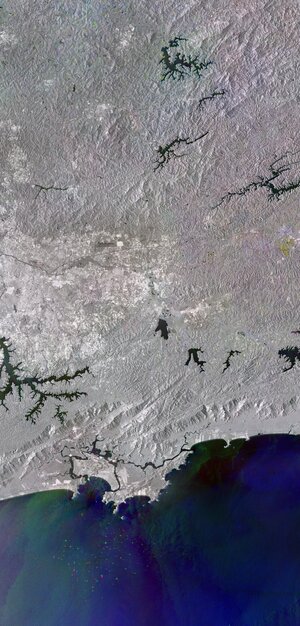 Image:
This radar image from Copernicus Sentinel-1 shows the city of São Paulo and part of the homonymous state in southeast Brazil.
Image:
This radar image from Copernicus Sentinel-1 shows the city of São Paulo and part of the homonymous state in southeast Brazil.
Konference GEPRO & ATLAS 2023
25.5.2023 11:57 GEPRO29. ročník konference 20. a 21. září 2023 | Praha, hotel Olšanka Jménem společností GEPRO a ATLAS, ve spolupráci se společností EuroGV, vás srdečně zveme na 29. ročník konference Setkání uživatelů produktů a služeb společností GEPRO a ATLAS, který se bude konat ve dnech 20. a 21. září 2023 v hotelu Olšanka v Praze. Tato …
Konference GEPRO & ATLAS 2023 Pokračovat ve čtení »
Článek Konference GEPRO & ATLAS 2023 se nejdříve objevil na GEPRO.
Konference GEPRO & ATLAS 2023
25.5.2023 11:57 GEPRO29. ročník konference 20. a 21. září 2023 | Praha, hotel Olšanka Jménem společností GEPRO a ATLAS, ve spolupráci se společností EuroGV, vás srdečně zveme na 29. ročník konference Setkání uživatelů produktů a služeb společností GEPRO a ATLAS, který se bude konat ve dnech 20. a 21. září 2023 v hotelu Olšanka v Praze. Tato …
Konference GEPRO & ATLAS 2023 Pokračovat ve čtení »
Článek Konference GEPRO & ATLAS 2023 se nejdříve objevil na GEPRO.
Konference GEPRO & ATLAS 2023
25.5.2023 11:57 GEPRO29. ročník konference 20. a 21. září 2023 | Praha, hotel Olšanka Jménem společností GEPRO a ATLAS, ve spolupráci se společností EuroGV, vás srdečně zveme na 29. ročník konference Setkání uživatelů produktů a služeb společností GEPRO a ATLAS, který se bude konat ve dnech 20. a 21. září 2023 v hotelu Olšanka v Praze. Tato […]
Článek Konference GEPRO & ATLAS 2023 se nejdříve objevil na GEPRO.
20230526 - volné místo – Odborný/vrchní referent v OAaD KP Chomutov na KÚ pro Ústecký kraj
25.5.2023 11:47 ČÚZK - předpisy a opatření Katastrální úřad pro Ústecký kraj - Katastrální pracoviště Chomutov zveřejnil novou aktualitu: Nabídka volného místa - Odborný referent / vrchní referent v oddělení aktualizace a dokumentace katastru nemovitostí Katastrálního pracoviště Chomutov na Katastrálním úřadu pro Ústecký kraj20230526 - volné místo – Odborný/vrchní referent v OAaD KP Chomutov na KÚ pro Ústecký kraj
25.5.2023 11:47 ČÚZK /Urady/Katastralni-urady/Katastralni-urady/Katastralni-urad-pro-Ustecky-kraj/Katastralni-pracoviste/KP-Chomutov/O-uradu/Aktuality/20230526-volne-misto-–-Odborny-vrchni-referent-v-O20230526 - volné místo – Odborný/vrchní referent v OAaD KP Chomutov na KÚ pro Ústecký kraj
25.5.2023 11:47 ČÚZK - předpisy a opatření Katastrální úřad pro Ústecký kraj - Katastrální pracoviště Chomutov zveřejnil novou aktualitu: Nabídka volného místa - Odborný referent / vrchní referent v oddělení aktualizace a dokumentace katastru nemovitostí Katastrálního pracoviště Chomutov na Katastrálním úřadu pro Ústecký kraj20230526 - volné místo – Odborný/vrchní referent v OAaD KP Chomutov na KÚ pro Ústecký kraj
25.5.2023 11:47 ČÚZK /Urady/Katastralni-urady/Katastralni-urady/Katastralni-urad-pro-Ustecky-kraj/O-uradu/Aktuality/20230526-volne-misto-–-Odborny-vrchni-referent-v-OOdborný referent / vrchní referent v oddělení aktualizace a dokumentace katastru nemovitostí Katastr
25.5.2023 11:43 ČÚZK - předpisy a opatření Katastrální úřad pro Ústecký kraj Katastrální pracoviště Chomutovvypisuje výběrové řízení na místo
Odborný referent / vrchní referent v oddělení aktualizace a dokumentace katastru nemovitostí Katastrálního pracoviště Chomutov na Katastrálním úřadu pro Ústecký kraj
Odborný referent / vrchní referent v oddělení aktualizace a dokumentace katastru nemovitostí Katastr
25.5.2023 11:43 ČÚZK /Urady/Katastralni-urady/Katastralni-urady/Katastralni-urad-pro-Ustecky-kraj/Uredni-deska/Oznameni-a-jina-uredni-sdeleni/Volna-mista/DMS/Odborny-referent-vrchni-referent-v-oddeleni-ak-(2)Odborný referent / vrchní referent v oddělení aktualizace a dokumentace katastru nemovitostí Katastr
25.5.2023 11:43 ČÚZK - volná místa Katastrální úřad pro Ústecký kraj Katastrální pracoviště Chomutov vypisuje výběrové řízení na místo Odborný referent / vrchní referent v oddělení aktualizace a dokumentace katastru nemovitostí KatastrAn improved view of global sea ice
25.5.2023 8:55 ESA Observing the Earth
Earth’s declining ice is without a doubt one of the clearest signs of climate change. A new high-resolution sea-ice concentration data record has just been released as part of ESA’s Climate Change Initiative – providing new insights of sea ice concentration across the globe.
Představili jsme český průmysl a výzkum s drony na Korea Drone UAM Expo 2023
24.5.2023 20:41 UAVATento týden jsme představili český průmysl a výzkum s drony na Korea Drone UAM Expo 2023, který se konal v Incheonu. Korea na této akci ukázala, že patří mezi lídry v průmyslu a výzkumu s drony, kde vystavovalo spousta výrobců korejských dronů různých typů a dalších souvisejících řešení pro potřebnou implementaci Urban Air Mobility. Kromě […]
The post Představili jsme český průmysl a výzkum s drony na Korea Drone UAM Expo 2023 appeared first on UAV Aliance pro bezpilotní letecký průmysl.
Tristan McDonnell podcast conversation
24.5.2023 20:00 buildingSMART.orgTristan McDonnell served for many years on the buildingSMART International Infrastructure Room. We discuss this as well as his responsibilities being a Director at ARUP. We recall the experiences developing…
The post Tristan McDonnell podcast conversation appeared first on buildingSMART International.
Alex Plenty podcast conversation
24.5.2023 20:00 buildingSMART.orgAlex Plenty has recently been elected to the buildingSMART International Building Domain Steering Committee. He discusses how openBIM standards are needed to improve buildings and infrastructure from the perspective of…
The post Alex Plenty podcast conversation appeared first on buildingSMART International.
Metodika pro geodety k aktualizaci DTM
24.5.2023 18:34 ČÚZK - předpisy a opatření Do nové záložky Metodika byl přidán dokument Metodika pro geodetické zaměřování základní prostorové situace DTM kraje a pro práci s dokumentacíMetodika pro geodety k aktualizaci DTM
24.5.2023 18:34 ČÚZK - předpisy a opatření Do nové záložky Metodika byl přidán dokument Metodika pro geodetické zaměřování základní prostorové situace DTM kraje a pro práci s dokumentacíMetodika pro geodety k aktualizaci DTM
24.5.2023 18:34 ČÚZK - předpisy a opatření Do nové záložky Metodika byl přidán dokument Metodika pro geodetické zaměřování základní prostorové situace DTM kraje a pro práci s dokumentacíAnd the winners for ‘Best Prototype’ are…
24.5.2023 16:26 European GNSS Agency
#myEUspace, EUSPA’s signature competition, developed under the CASSINI Entrepreneurship Initiative, challenges innovators to develop game-changing solutions that leverage EU Space data from Galileo, Europe’s Global Navigation Satellite System (GNSS), and/or Copernicus, the European Earth Observation programme.
This year’s competition is unique in that it is divided into three different prize tracks (Ideas, Prototypes and Commercial Products), with each track consisting of three different innovation areas:
- Space My Life: Consumer solutions in focus areas such as health, citizen safety and security, gaming and entertainment, sports and fitness, tourism.
- Our Green Planet: Innovative solutions addressing conservation of ecosystems, green mobility, sustainable agriculture, management of energy and resources.
- Dive in Deep Tech: Innovative solutions combining EU space data with deep technologies such as Artificial Intelligence (AI), Quantum technologies, Blockchain, Metaverse and Extended Reality.
This evolution aimed at encouraging more innovators to apply – which is exactly what it did. Following a first track that saw 92 ideas submitted, the competition’s second track – for Best Prototypes – received 95 submissions from 25 countries of the European Economic Area.
After carefully evaluating each prototype and assessing their technology maturity, the #myEUspace competition jury has made its decision. “With this second track geared towards tested prototypes and beta versions ready to be brought to market, the jury paid particular attention to overall innovativeness, market potential, feasibility and relevance to the EU Space Programme,” says Justyna Redelkiewicz, Market and Downstream Innovation - Consumer Entrepreneurship and Environment Manager at EUSPA.
Without further ado, the 10 winners of the #myEUspace competition’s ‘Best Prototypes’ track are:
- CoCuRA Eco: Machine learning techniques to identify organic cotton
- OverView: Online platform to access and visualise environmental data
- Spillalert: Intuitive web interface for oil spills and blackwater tank detection
- Plantiverse: Green area monitoring and management platform
- Artificial Brain Tech: Quantum optimised scheduling of Earth Observation satellites
- Avalanche Monitoring: Monitoring avalanches with satellites and seismic sensors
- Climate AI for Web3: Real-world portable climate API for virtual worlds powered by AI and satellite data
- WaveOut: Augmented reality navigation app that guides by sound
- AeroVR: Virtual reality solution that simulates real UAV flights and operations
- Artur (Nav-X): Smartphone app using augmented reality to digitally explore tourist destinations
Submissions for the ‘Commercial Products’ track, the competition’s third and final track, are currently being evaluated.
Organised by EUSPA as part of the European Commission’s CASSINI – Space Entrepreneurship Initiative, the #myEUspace competition is open to teams from all EU Member States plus Switzerland, Norway and Iceland and has a total prize of nearly EUR 1 million.
Media note: This feature can be republished without charge provided the European Union Agency for the Space Programme (EUSPA) is acknowledged as the source at the top or the bottom of the story. You must request permission before you use any of the photographs on the site. If you republish, we would be grateful if you could link back to the EUSPA website (http://www.euspa.europa.eu).
Fighting wildfires in France from space | FIRE Preview
24.5.2023 16:00 ESA Observing the Earth Video:
00:12:42
Video:
00:12:42
Enjoy a sneak peek of ESA’s new documentary that looks at fire in all its fury - and how satellite technology is helping to mitigate this consequence of climate change. Join us on this journey as we meet the firefighter who fought one of the largest wildfires in his career, climate scientists working with satellite data, and the people on the frontline using these data to aid those affected. The full documentary will be released this summer.
Nová smernica
24.5.2023 16:00
ÚGKK SR
V sekcii Technické predpisy a iné akty riadenia je zverejnená Smernica na postup pri zápise, zmene a výmaze vecného bremena v súbore popisných informácií katastra nehnuteľností č. SM_UGKK SR_15/2023.
Fighting wildfires in France | FIRE Preview
24.5.2023 16:00 ESA Observing the Earth Video:
00:12:42
Video:
00:12:42
Enjoy a sneak peek of ESA’s new documentary that looks at fire in all its fury - and how satellite technology is helping to mitigate this consequence of climate change. Join us on this journey as we meet the firefighter who fought one of the largest wildfires in his career, climate scientists working with satellite data, and the people on the frontline using these data to aid those affected. The full documentary will be released this summer.
Fighting wildfires in France | FIRE Preview
24.5.2023 16:00 ESA Observing the Earth Video:
00:12:42
Video:
00:12:42
Enjoy a sneak peek of ESA’s new documentary that looks at fire in all its fury - and how satellite technology is helping to mitigate this consequence of climate change. Join us on this journey as we meet the firefighter who fought one of the largest wildfires in his career, climate scientists working with satellite data, and the people on the frontline using these data to aid those affected. The full documentary will be released this summer.
Fighting wildfires in France | FIRE Preview
24.5.2023 16:00 ESA Observing the Earth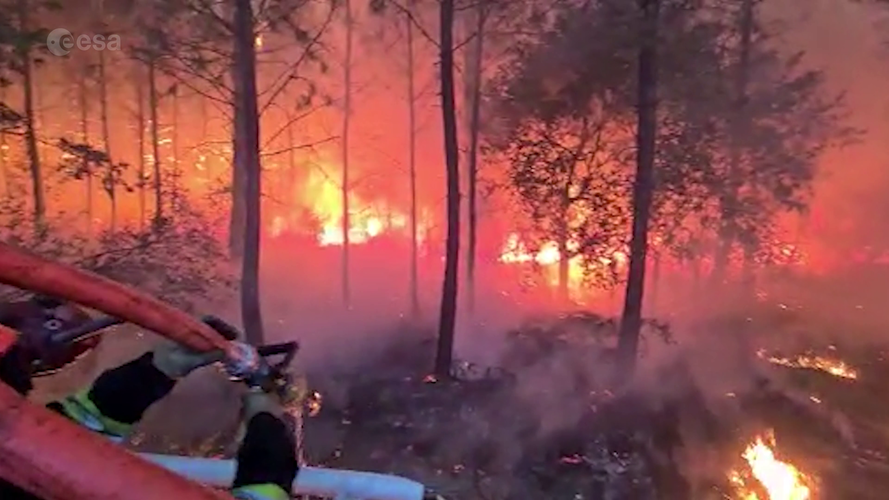 Video:
00:12:42
Video:
00:12:42
Enjoy a sneak peek of ESA’s new documentary that looks at fire in all its fury - and how satellite technology is helping to mitigate this consequence of climate change. Join us on this journey as we meet the firefighter who fought one of the largest wildfires in his career, climate scientists working with satellite data, and the people on the frontline using these data to aid those affected. The full documentary will be released this summer.
Webinář o správě Autodesk účtu, druhů licencí a jejich správném užívání
24.5.2023 15:04 Adeon
Společnost Adeon CZ srdečně zve všechny zájemce na exkluzivní webinář, který se zaměří na Autodesk Account, jeho spravování spolu se […]
The post Webinář o správě Autodesk účtu, druhů licencí a jejich správném užívání appeared first on Adeon CZ.
Webinář o správě Autodesk účtu, druhů licencí a jejich správném užívání
24.5.2023 15:04 Adeon
Společnost Adeon CZ srdečně zve všechny zájemce na exkluzivní webinář, který se zaměří na Autodesk Account, jeho spravování spolu se […]
The post Webinář o správě Autodesk účtu, druhů licencí a jejich správném užívání appeared first on Adeon CZ.
Odborný referent / vrchní referent – návrh zápisu v katastru v oddělení aktualizace KN Katastrálního
24.5.2023 9:55 ČÚZK - volná místa Katastrální úřad pro Zlínský kraj Katastrální pracoviště Zlín vypisuje výběrové řízení na místo Odborný referent / vrchní referent – návrh zápisu v katastru v oddělení aktualizace KN KatastrálníhoOdborný referent / vrchní referent – návrh zápisu v katastru v oddělení aktualizace KN Katastrálního
24.5.2023 9:55 ČÚZK - předpisy a opatření Katastrální úřad pro Zlínský kraj Katastrální pracoviště Zlínvypisuje výběrové řízení na místo
Odborný referent / vrchní referent – návrh zápisu v katastru v oddělení aktualizace KN Katastrálního pracoviště Zlín
Odborný referent / vrchní referent – návrh zápisu v katastru v oddělení aktualizace KN Katastrálního
24.5.2023 9:55 ČÚZK /Urady/Katastralni-urady/Katastralni-urady/Katastralni-urad-pro-Zlinsky-kraj/Uredni-deska/Oznameni-a-jina-uredni-sdeleni/Volna-mista/DMS/Odborny-referent-vrchni-referent-–-navrh-zapis-(1)Satellites provide crucial insights into Arctic amplification
24.5.2023 9:45 ESA Observing the Earth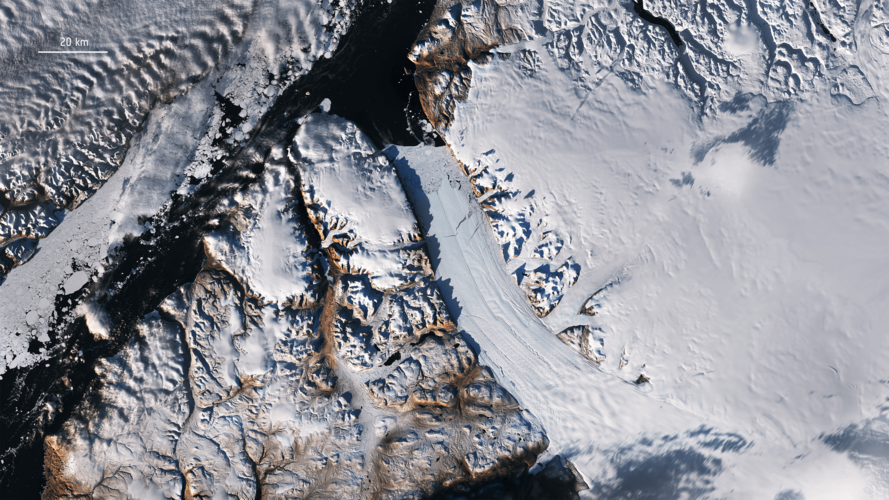
The Arctic, once again at the forefront of climate change, is experiencing disproportionately higher temperature increases compared to the rest of the planet, triggering a series of cascading effects known as Arctic amplification. As concerns continue to grow, satellites developed by ESA have become indispensable tools in understanding and addressing the complex dynamics at play and the far-reaching consequences for the environment and human societies.
Satellites provide crucial insights into Arctic amplification
24.5.2023 9:45 ESA Observing the Earth
The Arctic, once again at the forefront of climate change, is experiencing disproportionately higher temperature increases compared to the rest of the planet, triggering a series of cascading effects known as Arctic amplification.
As concerns continue to grow, satellites developed by ESA have become indispensable tools in understanding and addressing the complex dynamics at play and the far-reaching consequences for the environment and human societies.
Krátka správa č. 24/2023
24.5.2023 9:19 Komora geodetů a kartografů SRThe post Krátka správa č. 24/2023 appeared first on Komora geodetov a kartografov.
Krátka správa č. 23/2023
24.5.2023 9:15 Komora geodetů a kartografů SRThe post Krátka správa č. 23/2023 appeared first on Komora geodetov a kartografov.
Join us for the first Galileo HAS Days!
23.5.2023 12:41 European GNSS Agency
Scheduled for 28-29 June 2023, this event is an opportunity for the Galileo HAS user community, industry stakeholders, application developers and international experts to know more about the Galileo HAS Service (in operation since January 2023). In addition, it will be a great opportunity for all attendees to come together to discuss and share their expectations on the HAS service challenges and benefits.
During two days, participants will have the opportunity to learn more about the latest status of Galileo HAS service, including current performance, evolution plans and key user applications and to network. There will be also dedicated user sessions in parallel where participants could rotate, including live demonstrations allowing participants to experiment the Galileo HAS capabilities. In addition, participants will have also the chance to visit the European GNSS Service Centre (GSC) premises, the single interface between the Galileo system and the users. The GSC is a centre of expertise, knowledge sharing, custom performance assessment, information dissemination and support to the provision of value-added services enabled by the Galileo services. For the particular case of Galileo HAS, the GSC hosts the High Accuracy Data Generator (HADG), which computes the HAS orbit and clock corrections as well as the signal biases which are broadcast through the Galileo constellation and over the internet.
This first edition of the Galileo HAS Days will be held as a hybrid event, meaning you can join either online or physically in INTA (Torrejón de Ardoz, Madrid - Spain).
The draft agenda is available here.
Registration for the event is open until 16 June 2023 for those willing to attend onsite. Join us here!
For more information on Galileo HAS, please refer to the service documentation available online.
Media note: This feature can be republished without charge provided the European Union Agency for the Space Programme (EUSPA) is acknowledged as the source at the top or the bottom of the story. You must request permission before you use any of the photographs on the site. If you republish, we would be grateful if you could link back to the EUSPA website (http://www.euspa.europa.eu).
ESA receives Space for Climate Protection Award
23.5.2023 12:20 ESA Observing the Earth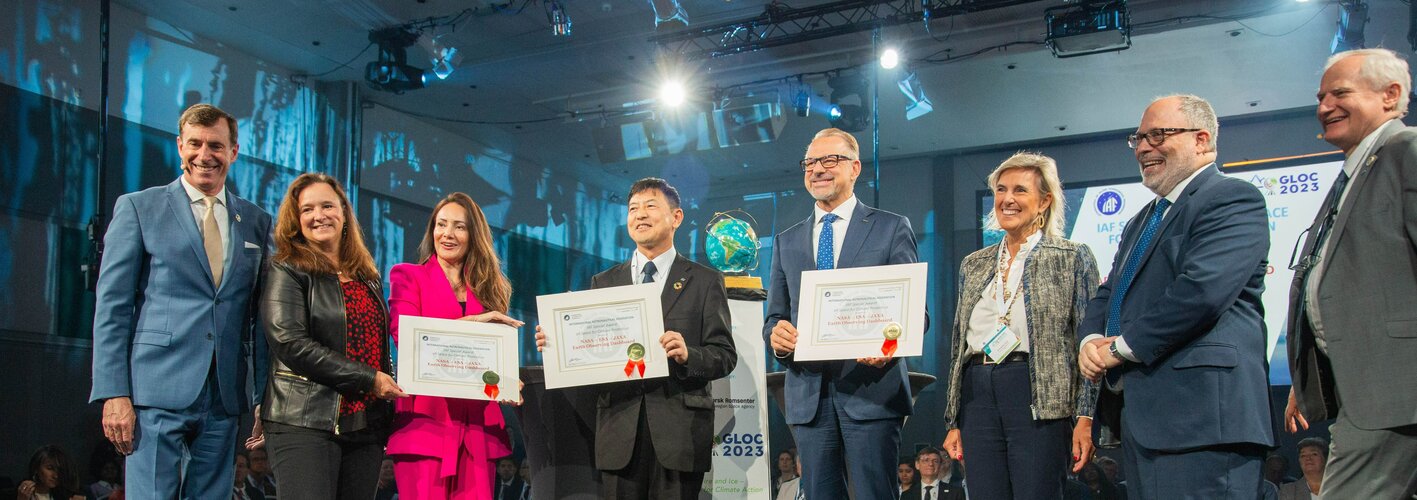
ESA has been presented the ‘Space for Climate Protection’ Special Award by the International Astronautical Federation during the Global Space Conference on Climate Change – currently taking place in Oslo, Norway.
Stav pořizování dat ZPS
23.5.2023 11:47 ČÚZK - předpisy a opatření Do záložky Podklady IS DTM byl pro případné využití přidán adresář s tabulkami popisující aktuálním stav pořizování dat základní prostorové situace (ZPS) DTM v jednotlivých krajích.20230511_Odborný / vrchní referent oddělení aktualizace a dokumentace KN
23.5.2023 11:09 ČÚZK - předpisy a opatření Katastrální úřad pro Středočeský kraj - Katastrální pracoviště Praha-západ Vyhlášení výběrového řízení: Odborný / vrchní referent oddělení aktualizace a dokumentace KN V části "Úřední deska", v sekci "Oznámení a jiná úřední sdělení" bylo vystaveno "Oznámení o vyhlášení výběrového řízení na obsazení služebního místa Odborný / vrchní referent oddělení aktualizace a dokumentace KN"20230511_Odborný / vrchní referent oddělení aktualizace GI KN
23.5.2023 11:09 ČÚZK /Urady/Katastralni-urady/Katastralni-urady/Katastralni-urad-pro-Stredocesky-kraj/Katastralni-pracoviste/KP-Beroun/O-uradu/Aktuality/20210922_Odborny-referent-oddeleni-aktualizac-(10)20230511_Odborný / vrchní referent oddělení aktualizace a dokumentace KN
23.5.2023 11:09 ČÚZK /Urady/Katastralni-urady/Katastralni-urady/Katastralni-urad-pro-Stredocesky-kraj/Katastralni-pracoviste/KP-Beroun/O-uradu/Aktuality/20210922_Odborny-referent-oddeleni-aktualizac-(10)Odborný / vrchní referent oddělení aktualizace a dokumentace KN
23.5.2023 11:08 ČÚZK /Urady/Katastralni-urady/Katastralni-urady/Katastralni-urad-pro-Stredocesky-kraj/Uredni-deska/Oznameni-a-jina-uredni-sdeleni/Volna-mista/DMS/Odborny-vrchni-referent-oddeleni-aktualizace-a-dokOdborný / vrchní referent oddělení aktualizace a dokumentace KN
23.5.2023 11:08 ČÚZK - předpisy a opatření Katastrální úřad pro Středočeský kraj Katastrální pracoviště Berounvypisuje výběrové řízení na místo
Odborný / vrchní referent oddělení aktualizace a dokumentace KN
Odborný / vrchní referent oddělení aktualizace a dokumentace KN
23.5.2023 11:08 ČÚZK - volná místa Katastrální úřad pro Středočeský kraj Katastrální pracoviště Beroun vypisuje výběrové řízení na místo Odborný / vrchní referent oddělení aktualizace a dokumentace KNAnnual global ice loss simulated over Oslo
23.5.2023 9:00 ESA Observing the Earth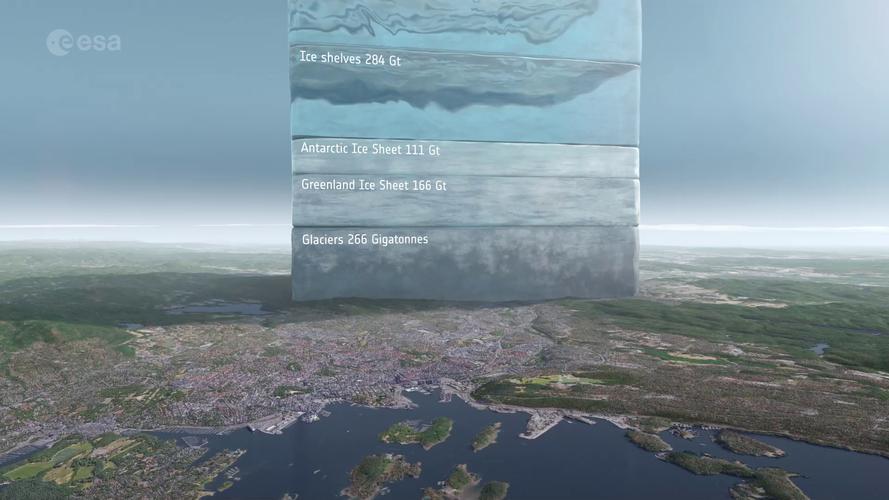 Video:
00:01:20
Video:
00:01:20
Satellites play a vital role in monitoring the rapid changes taking place in the Arctic. Tracking ice lost from the world’s glaciers, ice sheets and frozen land shows that Earth is losing ice at an accelerating rate.
Using information from ESA’s ERS, Envisat and CryoSat satellites as well as the Copernicus Sentinel-1 and Sentinel-2 missions, research led by Tom Slater of the University of Leeds, found that the rate at which Earth has lost ice has increased markedly within the past three decades. Currently, more than a trillion tonnes of ice is lost each year.
To put this into perspective, this is equivalent to an ice cube measuring 10x10x10 km over Oslo’s skyline. Putting it another way, the amount of ice loss globally is equivalent to 12 000 times the annual water use of the Norwegian capital.
The sooner Earth’s temperature is stabilised, the more manageable the impacts of ice loss will be.
Continuity in satellite data is the key to predicting future ice losses, and to assist in mitigating the threats posed by sea-level rise, shrinking high mountain glaciers and further climate feedbacks. The Copernicus Expansion missions, CRISTAL, CIMR and ROSE-L have been designed to fill the gaps in current Sentinel capabilities for comprehensive monitoring of changes in the global ice cover.
Watch now: Global Space Conference on Climate Change
23.5.2023 8:53 ESA Observing the Earth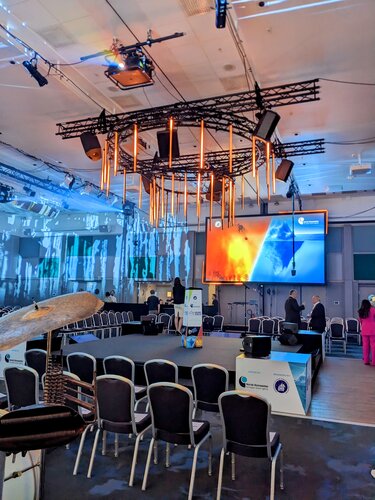
Watch now: Global Space Conference on Climate Change



